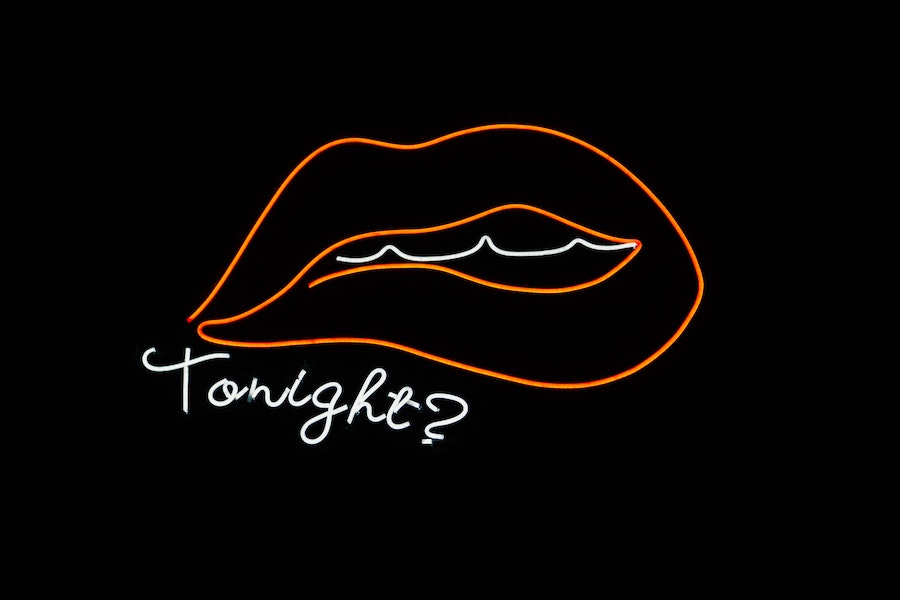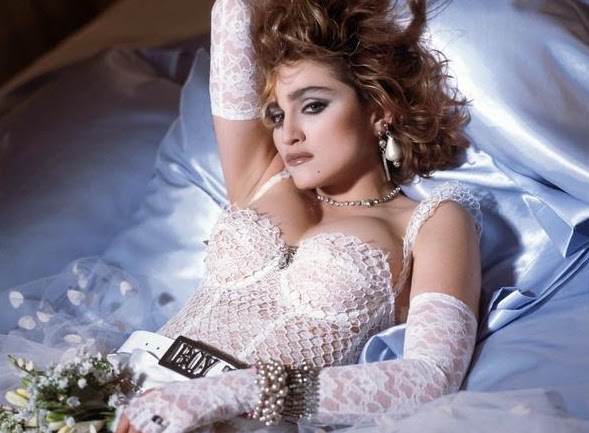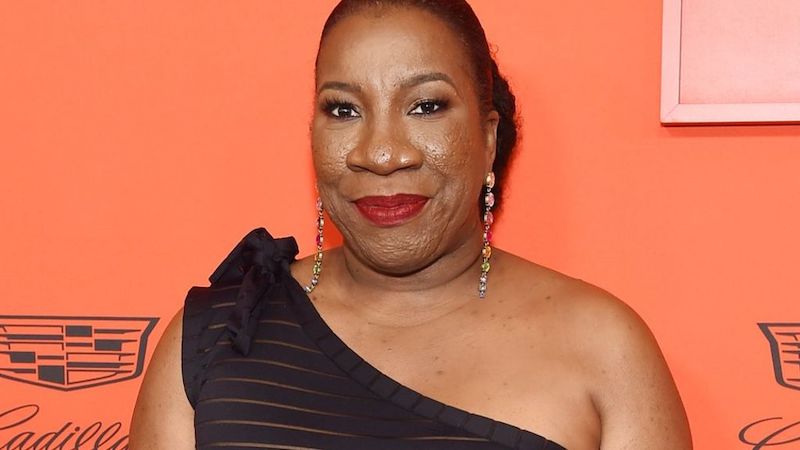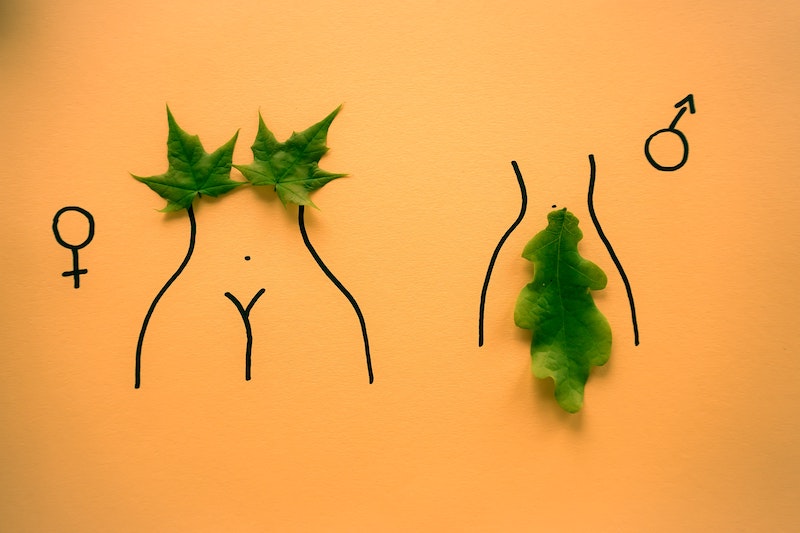Let's Talk About Sexual Empowerment

I recently discovered the power of my own sexuality and the importance of having a positive relationship with it.
That discovery was a rocky road. But I think I'm always learning something new about myself and my relationship with sex. Today I feel sexy and sexually empowered. I never thought it was going to feel this amazing. For me, feeling sexy has been a crucial step in my journey to confidence and self-esteem. And now that I’m coming out on the other side, I’m happy I fought for it. I’m glad that I learned to enjoy my body for the sake of pleasure, for how it makes me feel. This is why I want to share with you what I have discovered about sexual empowerment.
If you Google sexual empowerment, what comes up can be very tricky. Many articles about the importance of women's sexuality leave you more confused than when you started reading them. Simply put, sexual empowerment is a way of expressing your desires, expressing yourself sexually, alone, and with others. Being sexually empowered means having a healthy relationship with your body, your sexual self, accepting your sexual desires, and being able to communicate those desires with your partner. Sex educator, Amy Jo Goddard, gives many definitions of what a sexually empowered person is, including "intemperately connected to your sexual self; someone that communicates needs wants and desires without blame or shame; someone that feels at home with their self and their body, feels fully and sexually expressed and when they are not in their full expression, they how to get there."
Sexual empowerment starts from within like any form of empowerment. It is a way of expressing your desires, expressing yourself sexually, alone, and with others. The critical component is knowing that it’s a process, you don’t necessarily become sexually empowered overnight and culture, traditions, and society can sometimes misinform or influence this journey.
Image credit: Patreek Katyal, UpslashGoddard has created a 9-step guide that leads to sexual empowerment. Her first step is rewriting your sexual history, thinking about all the sexual experiences you've had, both good or bad, and releasing parts that no longer serve you. Emphasizing this step is important because sometimes people go through life without really looking back on what doesn't help them anymore. And when it comes to sexual empowerment, it is essential to know yourself and your history.
Goddard's other steps include releasing sexual shame, increase your sexual energy, shifting emotional patterns, activating sexual desire, accept your body, developing sexual skills, developing an erotic authenticity and personal love language, and, finally, coming home to yourself. This guide is perfect for someone new to the world of sexual empowerment or that only experiencing all these shifts in their sexuality. However, these steps are not strict or essential; they are simply a guide, a way to develop this sexuality. Goddard adds: "Sexuality is vast and complex — not a linear graph, not a one-way street, but an ever-unfolding prism."
While the term "sexual empowerment" has been around for a long time, people were largely unaware of it. In the wake of the #MeToo movement and other feminist movements, the term has gained more influence. Still, this term applies to all the entire sexual spectrum. However, people are still not comfortable with the term. I personally have encountered some resistance. Many don't really know what sexual empowerment is, or understand it differently. This has led me to believe that sexual empowerment can be subjective. Also, there is a constant paradox between the need to be respected sexually and, at the same time, feel desired by men and women when showing this empowerment.
In today's culture, sex sells. It is all around us, in the entertainment industry, in social media, in fashion, everywhere. Our society is very sex-saturated. This is why it is crucial to understand it and be comfortable with it. But how can you know what kind of information is actually empowering?
Seeing a singer on stage selling sex does not necessarily mean she is empowered; sometimes, sex is used as a tool to be more approachable. Madonna is an excellent example of this. In her unforgettable performance of "Like a Virgin" on the MTV Music Awards in 1984, she sang in very sexy attire and made mainstream history. According to the BBC, this performance even outraged the Vatican. Madonna is the perfect example of selling sex, but she did it while promoting empowerment. When she was asked about this by Rolling Stone in 1987, she said, "I was singing about how something made me feel a certain way – brand new and fresh – and everyone else interpreted it as, 'I don't want to be a virgin anymore, that's not what I sang at all." According to the BBC, in the 80s female bodies were used to sell everything, but "sexual assertiveness" was not ladylike. So there was a conflict between objectifying the female body but judging its empowerment. This is why many moralists and some feminists saw Madonna's interpretation of "Like a Virgin" as a disempowering move when in reality, it was about owning your sexuality.
Madonna in her iconic "Like a Virgin" music video.In the mid-90s, there was a new wave of empowerment in the entertainment business, especially a more gender-fluid view of sexuality. Amidst the AIDS epidemic, people were forced to talk about sex and be more informed. In the 21st century, the industry seems to embrace more positive female sexuality, with stars like Janelle Monáe and Swedish artist Zara Larsson, who admires women who sing about sex. "Usually, when women sing about sex, it's like: 'I wanna feel this'," she says. "Guys are more likely to express: 'I'm gonna do this to you'; sex is something being done to you, rather than something you're part of. When I write songs, my favorite thing to explore is that initial attraction, when you see someone on the dancefloor, and it's raw lust. That feeling is so fun to write about, and it's so relatable." She told the BBC. Through music and the entertainment industry in general, many people who are searching for their sexual power feel encouraged to talk more and more about it.
Zara LarssonSexual empowerment is directed towards women since it's them who have started the conversation and feel the need to be heard and respected sexually. The #MeToo movement shed a lot of light on this pressing issue. Many women started speaking up and talking about being sexually abused. The #MeToo movement had already been around for a while before it started gaining recognition by victims denouncing Harvey Weinstein, the famous Hollywood producer that sexually harassed many women throughout his career.
According to the website, the movement has created a community of strong women who want to see a cultural transformation by "encouraging millions to speak out about sexual violence and harassment." The site describes one of their main mottoes as "empowerment through empathy" because founders believe that victims need to know that they're not alone. The #Metoo movement was founded by a woman and activist, Tarana Burke, who was sexually abused at 13thiretten by her mother's boyfriend. She founded the non-profit Just Be, Inc., which focused on helping and supporting victims of sexual abuse. According to Time Magazine, years later, in 2017, when actress Alyssa Milano tweeted about this, the movement went viral. This is how the conversation about women and sex started to become essential and central everywhere. Time's up, an organization for equal pay in the workplace, was founded by 300 Hollywood actresses, and women's voices started to be heard. It was then that sexual empowerment begun to be meaningful and a central part of the conversation.
Tanara Burke, founder of the MeToo movementSo how does one go from sexual trauma to sexual empowerment? It is difficult since there is so much suffering from a sexual assault or trauma; the way you relate to fear, your body, lovers, sex, power. How to come out of this? First of all, by talking about it, share it with people who understand and give you confidence and find ways to let go because one can't truly step into their own path to sexual empowerment if they do not heal from trauma first. But sexual awakening can be a healthy way to heal. Since different things can be sexually empowering to other people, everyone lives it differently. Still, it is vital to break away from stereotypes that society has enforced around this, talk about your trauma, and live through that empowerment.
Such an important and pressing issue, such as sexual harassment, gave way to start the conversation about sexual empowerment is very interesting. There seems to be a paradox between being sexually empowered and wanting to feel desired, and at the same time asking to be respected by the same men or women you want to be desired by. Sex coach and therapist Clark Rose have a way of explaining this by saying that "Sexual empowerment is feeling good in your body and being able to love your body even when you're maybe feeling bad in it. It's recognizing your sexual worth and knowing that you don't have to have sex or look a certain way to be a "sexual being."
Alexander Kriviskiy. Image credit: UpsplashAn essential part of sexual empowerment is sex; the word itself has it. However, many people are afraid to talk about it, it's somehow become a bit of a taboo in some circles, but an important topic to talk about nonetheless. Sexuality is essential to women's political and economic empowerment. They need control over their bodies and sexual selves to have sexual rights, such as practicing safe and satisfying sex.
Sexuality is fundamental for our wellbeing according to The Pathways of Women's Empowerment Research Programme, "Our sexualities, sexual choices and sexual experiences shape who we are, and can have a significant impact on our health, wealth, wellbeing and capacity to contribute to our communities and societies." And many times, there can be negative or harmful stereotypes towards women being sexually empowered. This is dangerous because women cannot protect themselves and their sexuality if they are not safe in their bodies. It can be disempowering.
Although the #MeToo movement is essential for women's history and rights, it can sometimes draw attention away from positive dimensions of sexuality. So if sexuality is not taken into account, there can be adverse outcomes for women and girls. Sexual empowerment is significantly tied to this specific gender because of all the troubles women have endured throughout the years. Their empowerment is a representation of the fight that we've seen for decades, and more intensely so for the past few years. It is a means of developing and growing towards a more structured and safe society. But it has not always been easy. Many women face judgment or are mislabeled or slut-shamed by the simple fact of looking for empowerment and being comfortable talking about sexuality and sex. There is a common social conservatism that counterparts this path for many women, and sometimes even men.
Dainis Graveris. Image credit: UpsplashThere seems to be a part of society that is entirely comfortable with the idea of sexual empowerment; they even support and encourage it: millennials. They are the generation of questions, revolts, and social media. They are interconnected all the time, and they lack conservatism; most of them believe in fairness and equal rights for women and men. However, many violate these same rights they pretend to support, which is why there is a struggle to be purely sexually empowered everywhere. I asked some people on social media how they felt about sexual empowerment.
From a 28-year-old living in New York to an 18-year-old boy living in Mexico City in a macho society, they all agree that sexual empowerment is essential. There are very few against sexual empowerment; if so, they don't like to speak about it; they feared being judged, especially young men, which is why it was surprising when I received this positive answer from 20-year-old Mexican Carlos Aldama. Being from a very conservative society, he was not afraid to give his opinion when it comes to sexual empowerment for men.
"The most important opinion is one's own but at the same time the most difficult," he says. "Because you can be self-motivated by accepting yourself, or you can be self-motivated by rejecting yourself. Maybe you don't have a six-pack, as many of us would like, but if you accept yourself and like yourself with your qualities, you are empowering your sexuality." Aldama's point of view is interesting because it broadens the discussion and goes beyond women's sexual empowerment; he invites us to see what some men feel about their sexuality or insecurities.
Contrasting Carlos' point of view, 25-year-old Mexican artist Antonia Garcia López talks more in-depth about what sexual empowerment is for her and why it is essential to practice it. It gives her a very favorable opinion about sexual empowerment by saying that "Sexual empowerment is to know myself, to know what I like and dislike sex-wise truly and to be able to enjoy it either alone and with a partner." Consequently, by being so open about her sexuality, she has sometimes encountered many people that judge her.
"I've been judged more than once for openly talking about 'weird"'things about sex," she says. "Things that are not weird but people are sometimes too close-minded to seek them) such as masturbation, sex toys, role-playing, and any other fun things to spice up your sex life." For her, there is a common misunderstanding of the term "sexually empowering" since many people think it is to go around sleeping with different people, when it is so much more than that, it is more personal. "I believe people should take the time to know themselves, to explore, to go out of your comfort zone, and to respect one another in that sense," she added.
Image credit: Mia Harvey, UpsplashHealth coach Melani Shweder agrees with Garcia by saying in a recent article that there is particular oppression when it comes to talking about sex "Many of us, myself included, were raised in a system that oppressed women and those on the LGBTQ spectrum, created shame around masturbation, and spread harmful lies about sex, virginity, STIs, and other issues." However, she says that regardless of our childhood, we can rewrite our story.
For me, the path to being sexually empowered has been difficult; I have dealt with insecurities, questions, and people who judge me, but I think today I feel 100% in control of my sexuality and how to manage it. Still, I recognize that it is a difficult path to reach if you are uninformed and unaware. Upon more research and talking to experts and people on the same path as me, I realized that it's possible to be sexually empowered without feeling ashamed. I will always find new ways to feel more empowered, sexy, and beautiful, but it is essential to connect my mind and body. Sexual empowerment is not only about sex and desire, but it isn't what others tell you either; it's your path to self-discovery and enjoying yourself by always taking care of your soul and body.
There seems to be a lot of confusion around the topic, so I recommend reaching out and talking about it with experts or friends. It's not just about empowerment and "being strong," for me; it's also about being comfortable with sex, sexiness, desires, and all the words that circle sexual empowerment. I'm sharing my journey, questions, and thoughts to think about this without self-judgment, so you know it's normal to have doubts.
Be sexually empowered, love yourself, discover yourself, but most importantly, respect yourself along the way.














